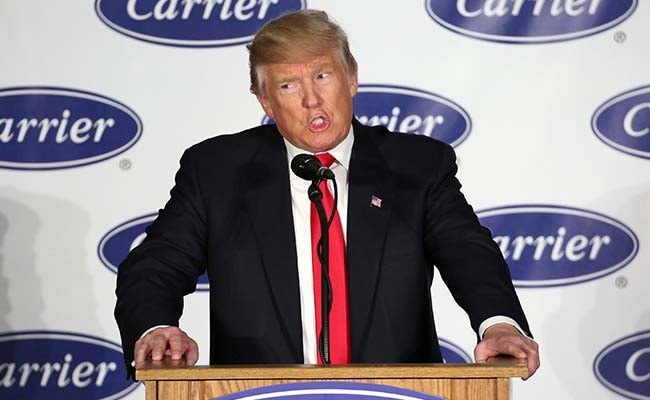
North Atlantic Treaty Organisation and the European Union overcame years of rivalry on Tuesday to agree a seven-point plan to counter tactics such as cyber attacks, information warfare and irregular militia from Russia and other potential aggressors.
The pact, which is not legally-binding, allows the six EU states outside NATO to benefit from some of the US military support that President-elect Donald Trump has suggested could be conditional on greater European defence spending.
The proposals should also reassure Europe that the United States, the leading power in the North Atlantic Treaty Organization, is committed to the region despite Mr Trump's campaign comments that have unsettled allies, NATO officials said.
"We are strengthening the transatlantic bond and the vital link between North America and Europe," NATO Secretary-General Jens Stoltenberg told a news conference with EU foreign policy chief Federica Mogherini.
"The US commitment to NATO transcends politics ... I am confident that the majority of both major parties (in the US) are committed to NATO," outgoing US Secretary of State John Kerry told journalists.
During the US election campaign, Mr Trump challenged longtime US foreign policy in Europe by saying Washington might not defend NATO allies that do not pay more for their own security.
The EU-NATO agreement follows agreement on a separate EU defence fund to pay for helicopters, planes and other equipment, in part to send a signal to Trump.
The EU-NATO plan aims to ensure any assets in the 22 allies in both NATO and the EU are available for both NATO and EU operations.
"With a changing security environment, it's a good thing for NATO and the European Union to combine efforts," German Foreign Minister Frank-Walter Steinmeier said.
Russian cyber attacks, a migration crisis and failing states near Europe require both NATO's military response and a softer security approach that the EU can provide to combat propaganda and provide training to stabilise governments, officials say.
Russia's 2014 annexation of Crimea showed the West's inability to deal with unconventional tactics such as computer hackers, disinformation campaigns and militia without insignia.
Under the agreement, experts from the EU and NATO will cooperate to detect and deflect hackers on computer networks and prepare for potential attacks.
NATO and the EU should also cooperate more closely in the Mediterranean, where both have operations, and to avoid any return to the competing operations of the past.
However, both institutions face limits because of tensions between Turkey and Greece that limit information sharing.
Turkey, a member of NATO but not of the EU, blocks the sharing of alliance intelligence with the EU, while EU- and NATO-member Greece does not want Brussels sharing any sensitive information with the alliance because of Turkey.
Track Latest News Live on NDTV.com and get news updates from India and around the world

